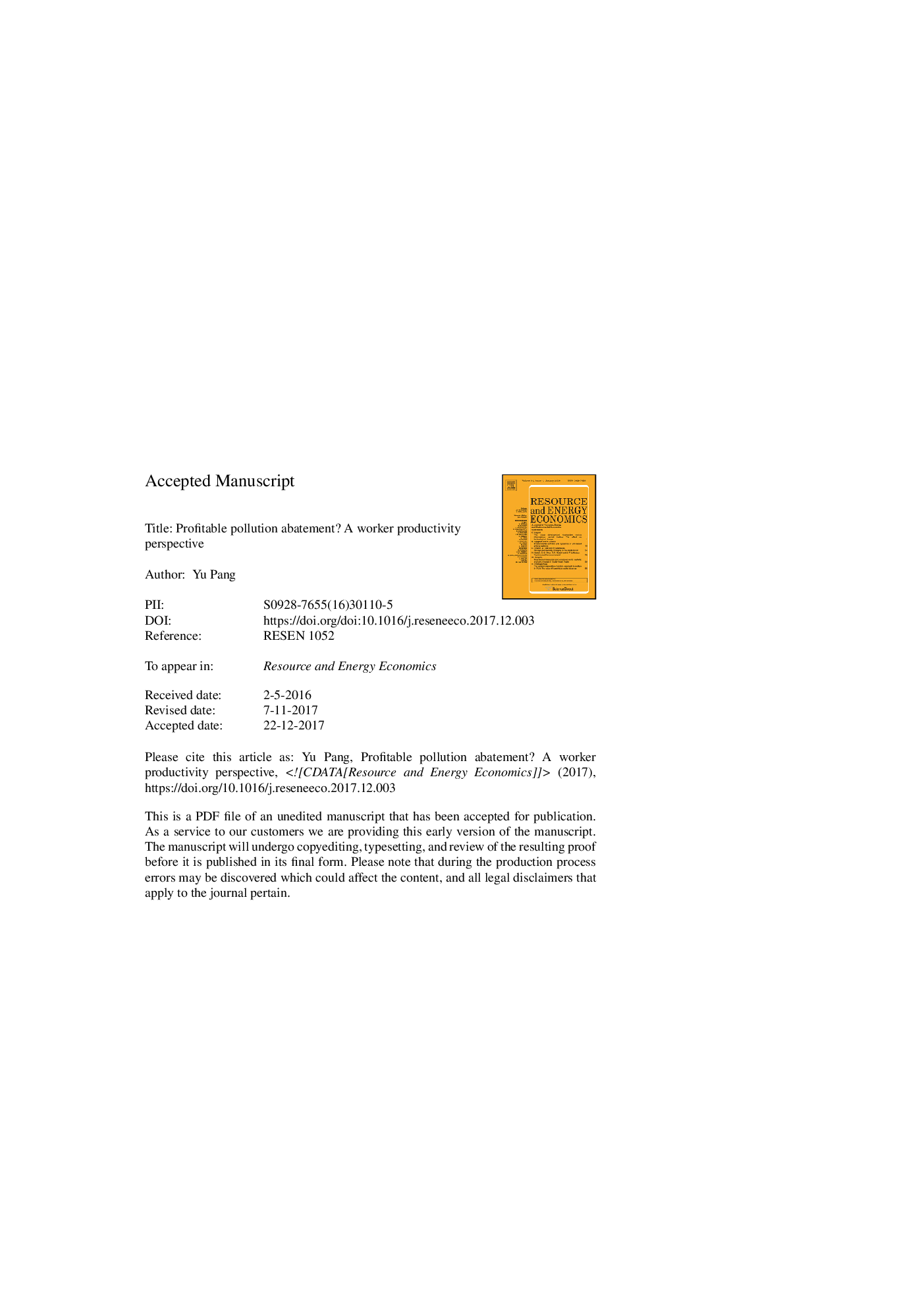| Article ID | Journal | Published Year | Pages | File Type |
|---|---|---|---|---|
| 7387435 | Resource and Energy Economics | 2018 | 38 Pages |
Abstract
Based on the empirical evidence that improved environmental quality makes workers more productive, this paper develops a model that pollution abatement can raise firm profitability by enhancing worker productivity. We investigate two types of environmental regulations - government intervention and voluntary regulation, showing that both can induce the collective action of imperfectly competitive firms to abate pollution, which increases their profits as well as social welfare. A pollution tax can prompt a firm to raise output if the productivity gain arising from total pollution reduction offsets the firm's pollution cost. We characterize the optimal pollution tax and demonstrate that the combination of a pollution tax and an output subsidy can lead to the social optimum. Voluntary regulation tends to fully internalize the productivity effect of reduced pollution for firms, although it facilitates firms' collusion in restricting production. Moreover, we conduct a simulation evaluating the welfare consequences of the two regulations in comparison with the social optimum.
Related Topics
Physical Sciences and Engineering
Energy
Energy (General)
Authors
Yu Pang,
